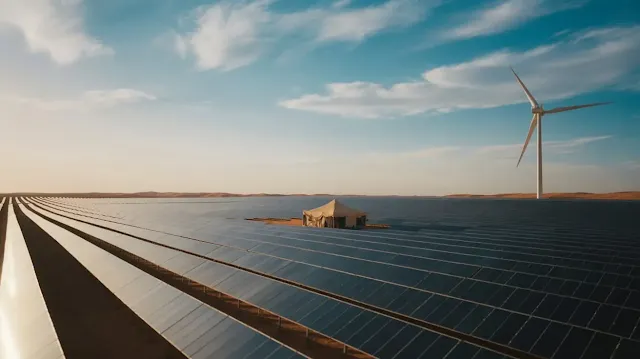Africa’s Renewable Energy Revolution: Green Projects Empowering the Continent
A Rising Force in Global Clean Energy
As the global shift toward sustainability accelerates, Africa is emerging as a promising leader in renewable energy innovation. With vast solar potential, coastal winds, and strong government support, several African nations are actively developing green energy projects to meet growing electricity demand, reduce carbon emissions, and boost economic development.
Morocco: Pioneering Desert-Based Solar and Wind Power
Harnessing the Sun at a Massive Scale
Morocco has become a symbol of solar energy leadership in Africa. The Noor Ouarzazate Solar Complex, located in the edge of the Sahara, is one of the largest concentrated solar power plants in the world. It provides clean electricity to hundreds of thousands of homes and reflects the country's long-term commitment to reducing fossil fuel dependence.
Exporting Green Energy to Europe
With initiatives like the proposed Xlinks interconnector, a vast undersea power cable linking Morocco to the United Kingdom, Morocco is setting its sights on becoming an energy exporter. Although the UK recently reduced support for the project, Morocco remains focused on expanding its solar and wind capacity for both domestic use and export, especially in the form of green hydrogen in collaboration with European partners.
Rwanda: Advancing Clean Energy Through Community Solutions
Decentralized Solar for Rural Empowerment
In East Africa, Rwanda is making waves by implementing small-scale solar power systems that bring electricity to remote villages. Projects like the Rwamagana solar plant are key to the nation’s strategy for achieving universal electricity access while minimizing environmental impact.
Integrated Green Housing Projects
The Green Gicumbi initiative blends climate-resilient infrastructure with clean energy. By constructing sustainable homes and distributing eco-friendly cookstoves, the program enhances community well-being while reducing emissions and promoting energy independence.
Egypt: Scaling Up Solar and Wind to Power the Nation
A Landmark in Solar Energy Deployment
Egypt's Benban Solar Park in the western desert is one of the largest solar energy developments globally. It plays a central role in the country’s plan to generate a significant share of its electricity from renewable sources, helping reduce reliance on natural gas and lowering the nation’s carbon footprint.
Strategic Investments in Wind Energy
Egypt is also a major player in wind energy development. Coastal regions like the Red Sea and the Gulf of Suez are being transformed into high-capacity wind farms through international partnerships. These projects aim to power millions of homes while supporting green job creation and infrastructure development.
Policy, Finance, and Regional Cooperation
Creating a Favorable Investment Climate
African governments are introducing supportive policies to attract investment in renewable infrastructure. From feed-in tariffs to public-private partnerships, these frameworks reduce risk and encourage private sector involvement in green energy production.
Backing from Global Development Institutions
The African Development Bank and other international entities are providing critical financing and technical support to expand grid access and modernize energy infrastructure across the continent, with Rwanda, Egypt, and Morocco being key beneficiaries.
Opportunities and Obstacles on the Path to Sustainability
Key Benefits for Africa
Energy security: Reduces dependence on imported fossil fuelsJob creation: Stimulates employment in construction, operation, and maintenance
Rural development: Powers schools, hospitals, and irrigation systems
Climate action: Positions Africa as a proactive player in global decarbonization
Challenges That Remain
Despite remarkable progress, the continent still faces challenges such as:
Underdeveloped transmission networksHigh upfront costs for large-scale projects
Limited access to skilled labor in certain regions
Need for integrated cross-border electricity trade systems
Africa’s Green Future: Momentum Toward a Cleaner Continent
Africa’s clean energy journey is no longer a distant dream, it’s unfolding now, driven by innovation, collaboration, and necessity. From the deserts of Morocco to the highlands of Rwanda and the coasts of Egypt, countries are building a sustainable energy future.
With the right policy support, regional coordination, and technological innovation, Africa can position itself not just as a consumer, but as a global leader in renewable energy production, export, and climate resilience.




Write a comment, your opinion matters to us